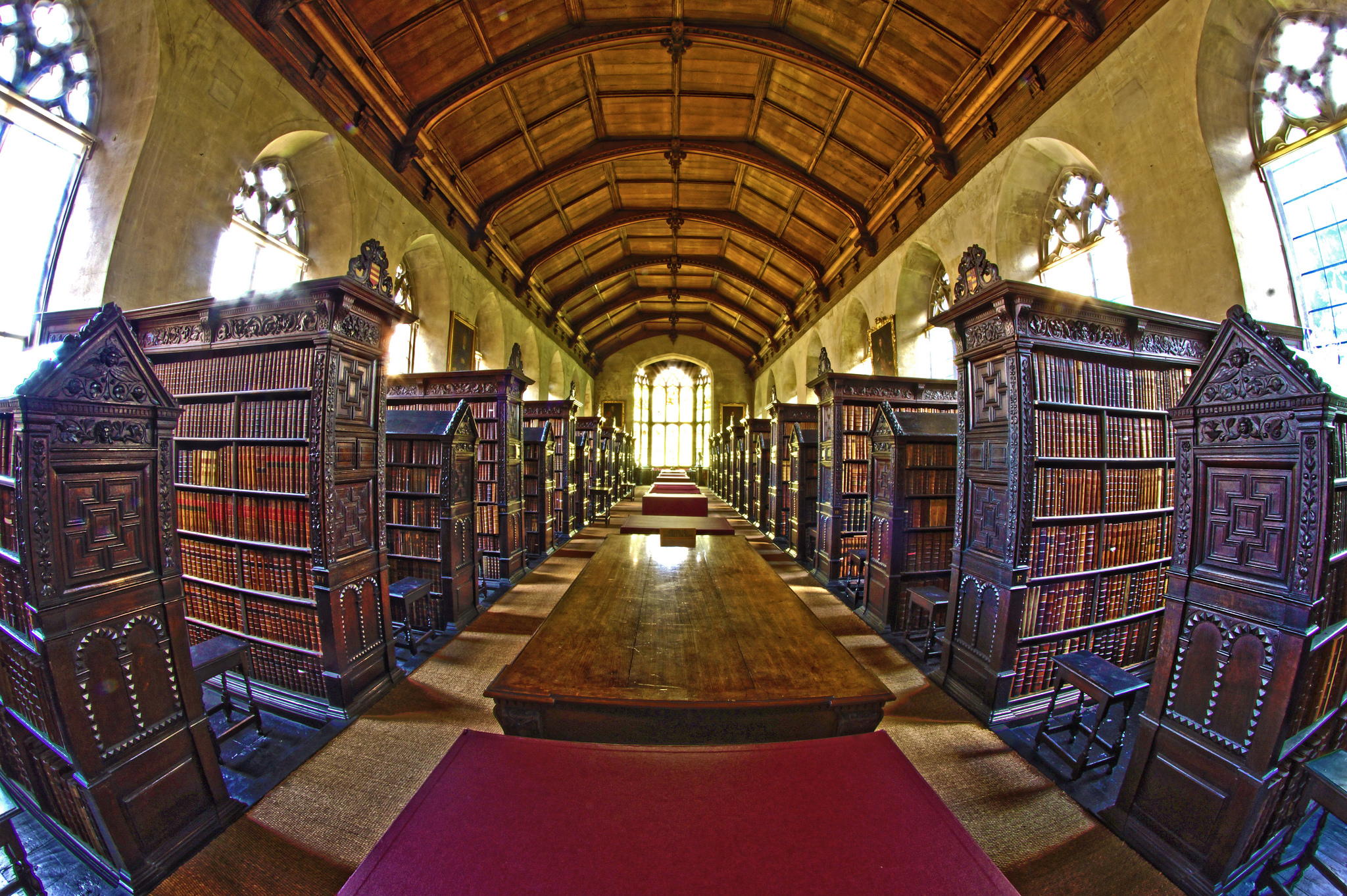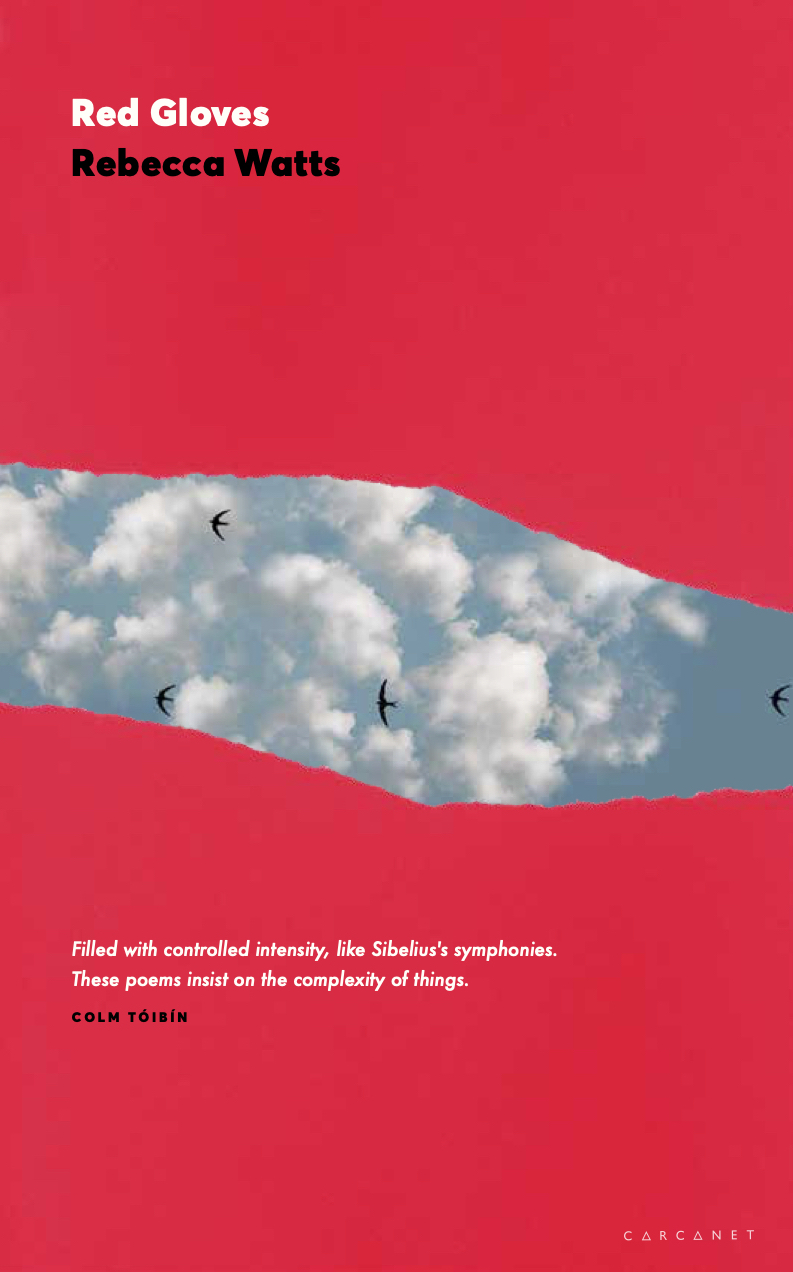Finding my ‘inner red’
“I would love for someone to read something I’ve written and feel like it was ok to be alive”
To mark the publication of her second book, Red Gloves, poet and Library Projects Assistant Rebecca Watts tells us about why she started writing poetry, her love of landscape and how she accidentally followed Wordsworth from Cumbria to Cambridge.
In normal life people don’t talk about poetry and they don’t think it is especially important – it is not in your life unless you make it be in your life. Even though I started a PhD on modern poetry, it didn’t occur to me to write poems. But when I left, and moved to London to live with friends, I suddenly really missed poetry. I spontaneously enrolled to do a ‘Writing Poetry for Beginners’ evening class, and that was how I got started.
Poetry is an art form that’s alive and it’s happening now and it’s being written by people you pass in the street. I realised this when I got an internship at the Wordsworth Trust in Grasmere in the Lake District. At the time there was a flourishing literature programme and being there exposed me to the contemporary poetry scene.
Several times a week I would work a shift as a tour guide in Dove Cottage, which was William and Dorothy Wordsworth’s house, so I would be walking around all day telling people about their lifestyle and what they were writing when they were there. Often tourists would turn up and recite poems that they had learnt at school decades earlier. It was inspiring.
It was by chance that I got a job at St John’s – Wordsworth’s old College. I turned up for the interview and when I saw his life mask in the Library during a tour I thought, ‘I can’t get away from this bloke!’ The connection has turned out to be wonderful. Curating the ‘Wordsworth at 250’ exhibition this year has been a highlight.
I always loved reading. I grew up in Sudbury in Suffolk and have definitely been influenced by the landscape and atmosphere of East Anglia and the rural way of life. The settings of my poems are usually quite important – there’s often a dynamic between the people or the consciousness in the poem and the physical backdrop.
Two of my English teachers from sixth form were massively influential. They shaped my enquiring mind about words and about ideas. I went to a comprehensive school and one of my teachers had been to Cambridge and got me on that track. I was the first person in my family to go to university, so it was really important to have that input from someone who was passionate about literature as well. I applied to study English at Cambridge, and went to Trinity College.
As I work on a poem, I think ‘how can I put something from my mind into your mind with minimum interference?’ Louis MacNeice’s poetry was a major influence on my early attempts at writing. I also love William Carlos Williams, and many more recent poets, including Alice Oswald and Jacob Polley. Their work has made me aware of how important it is to look closely at the world around you, and to listen to the sounds of words and think about how they correspond to what it is that you are really, really, trying to plant in the mind of the reader.
I’m not someone who keeps a journal or a notebook in a dedicated way. I tend to get ideas when I’m walking, running or reading. I work part-time because I want to have time in the mornings to drift around and try to make space in my mind for things to come in. I’ll get a phrase or a line in my head, or a bit of a rhythm in my ear that’s connected to something I’ve seen or heard, and I let that turn over a bit. I won’t write it down for quite a while, because I find that if something has legs, I’ll remember it.
Red Gloves is a collection of poems rather than a book with a concept. My first book was concerned with the relationship between people and the physical environment, whereas in this book there are more poems involving people trying to find ways to understand each other, to live together, to move forwards in an often hostile world. But there are still lots of poems about communing with the environment, and the pleasures and dangers of losing yourself in a kind of isolation, or meditation – poems about wild swimming, or about walking in particular places.
The title poem includes an image of someone wearing red woollen gloves at a funeral, and there is another poem called ‘Barbecues’ which is about domestic violence and features a boxer’s red mitt. Lots of the poems are about the body, its invasion and modes of expression, and I suppose that’s a more subtle take on the red glove image – the surgeon’s gloves, perhaps – which in turn helped me think through the old ideas about nature being red in tooth and claw, nature and nurture, kindness and hostility, and how people function in the context of these conditions.
Someone once asked me: where’s your inner red? I’ve had that in my mind the last few years; what is my inner red, and how do I access it? What is it about this state – an embodied state – that I find difficult to express? Working on this book, I actively tried to engage that side more, and I hope that comes through in the poems.
There’s something quite special about reading a poem – it’s like someone is talking directly and only to you. I would love one day for someone with a completely different lifestyle to mine to read something that I’ve written and feel like it was ok to be alive. We need loads of poetry all the time because keeping the art form alive and diverse increases the chances that those really special poems will get written and be preserved in print.
The poetry scene at St John’s is lively in part thanks to there being a Writer in Residence, currently Sasha Dugdale. Sasha runs a weekly reading group where people bring work to share that they have read and enjoyed. In workshop situations you get the chance to have amazing people – editors, students and fans of poetry – give feedback on your work.

The Old Library is inspiring. I love physical things. We tend to think about literature as a concept but what it comes down to is vellum and leather and paper and ink, and I love being surrounded by all of that. Being in a place that values thought and ideas and reading is really encouraging.
I don’t think I’ll end up directly writing about the pandemic, but I am interested in the dynamic underneath world events – exploring power structures, such as who gets to say what’s true and who gets to decide what people can do. Questions like that may end up underpinning whatever writing I go on to do next.
• Red Gloves is published by Carcanet on 25 June 2020, RRP £10.99 from www.carcanet.co.uk or call 0161 834 8730. Copies are available for £8.24 with free UK P&P by using the code WATTS25 at the checkout (ends 30 June 2020).
• Tickets are available for the online book launch at 7pm on 8 July, when Rebecca will be reading poems in conversation with fellow poet Paul Stephenson and answering audience questions. Registration costs £2, later redeemable against the cost of the book.

Published: 25/06/2020